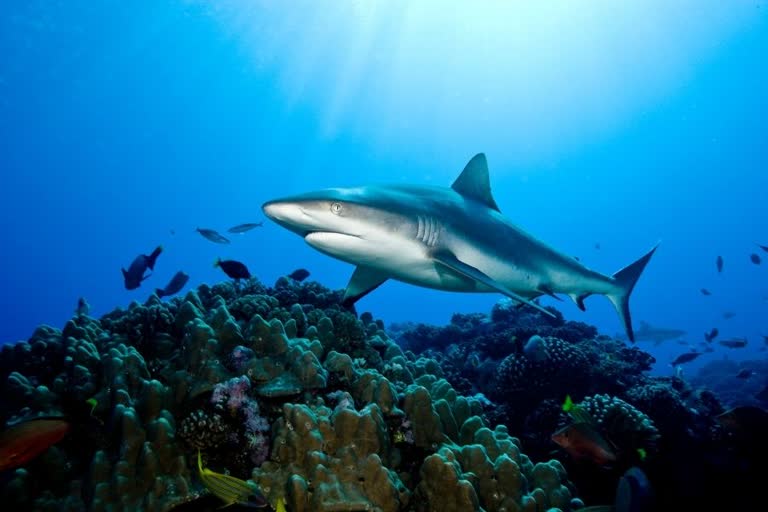Small, unique antibody-like proteins derived from the immune systems of sharks can help prevent SARS-CoV-2, the virus that causes COVID-19, its variants, and related coronaviruses from infecting human cells, according to a new study.
The small proteins known as VNARs are one-tenth the size of human antibodies. But these can bind to infectious proteins in unique ways that bolster their ability to halt infection. The new class of drugs is cheaper and easier to manufacture than human antibodies and can be delivered into the body through various routes. However, it has yet to be tested in humans.
Researchers from the University of Wisconsin-Madison showed that the VNARs were able to neutralize WIV1-CoV -- a coronavirus that is capable of infecting human cells but currently circulates only in bats, where SARS-CoV-2 likely originated.
"The big issue is there are a number of coronaviruses that are poised for emergence in humans. What we're doing is preparing an arsenal of shark VNAR therapeutics that could be used down the road for future SARS outbreaks. It's a kind of insurance against the future," said Aaron LeBeau, Professor of pathology at the varsity.
"These small antibody-like proteins can get into nooks and crannies that human antibodies cannot access. They can form these very unique geometries. This allows them to recognize structures in proteins that our human antibodies cannot," LeBeau said. The team published its findings in the journal Nature Communications.
In the study, the researchers tested the shark VNARs against both infectious SARS-CoV-2 and a "pseudotype," a version of the virus that can't replicate in cells.
